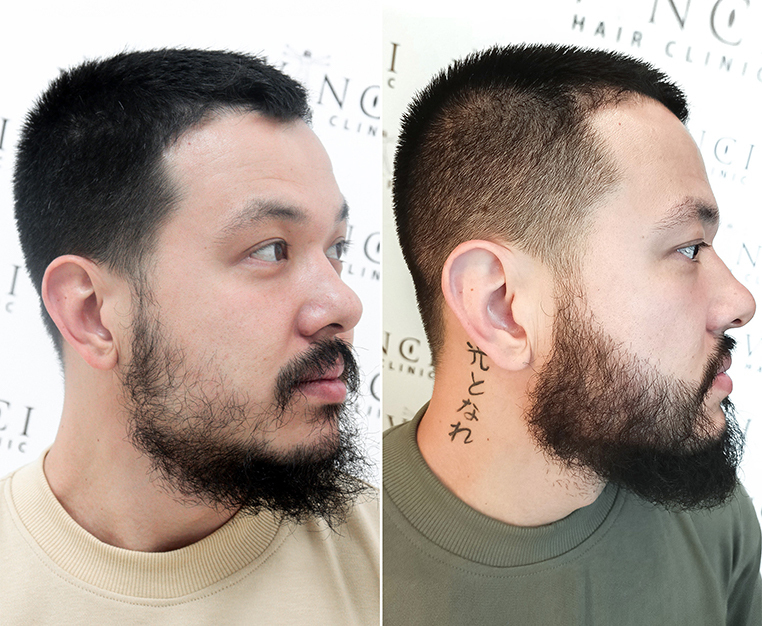While losing hair is equally stressful for men and women, the causes of hair loss differ for each gender. Genetic code, unregulated diets, exposure to chemicals (through hair pollution or haircare products) make up some of the reasons. Additionally, there are some gender-specific factors such as menopause in women and changes in testosterone levels in men.
The menopause period for women is accompanied by health changes, including changes in hair health. Hair loss is just one of the many symptoms experienced by some women during this period. What can be done about it? Read on to find out!
What Causes Menopausal Hair Loss?
Progesterone and oestrogen are two hormones that play an essential role in hair growth. During menopause, these levels drop significantly, leading to slower hair growth and even hair fall. This happens because androgens, male hormones that cause hair follicles to shrink and fall, are produced more extensively.
The female body doesn’t usually produce much androgen, but the level rises with the reduction of oestrogen and progesterone. When androgen levels are higher than normal, the hair thinning on the head is followed by a “peach fuzz”. Peach fuzz describes the growth of baby hair on the chin and face. A lack of proper nutrition and stressful situations can speed up hair loss as well.
How to Treat Menopausal Hair Loss
The reduction of female sex hormones usually causes hair loss on the forehead hairline and the central part of the head. Chances are that hair fallout could start near the nape, or even on the back of the head as well as close to the crown. The top of the head and areas around the hair’s parting are vulnerable to hair loss when androgen levels are high. Hair loss during this time is inevitable but not untreatable. Here are some ways to cope with it.
Reduce Your Stress Levels
Stress is one of the major factors behind hair loss. Besides the stressful events occurring in your life, stress levels are increased by the menopause hormonal changes.
Try breathing and physical exercises such as meditation, yoga, and mindful breathing techniques to lower your stress levels. Exercising isn’t only good for your body shape, but also for reducing stress. Weight gain, sleeping problems, and cognitive abilities are closely connected to stress levels and menopause. Exercising has been shown to contribute to the regulation of these issues, and as a result in the mitigation of menopause symptoms such as hair loss.
Maintain A Healthy Diet
Nutritional deficiency causes an imbalance in hormone levels. Studies show that malnourishment plays an active role in causing hair loss in women during menopause. Maintaining a healthy diet that contains essential nutrients for hair growth has been proven to reduce hair loss. Here are some nutrients your diet should include:
- Proteins have been shown to strengthen hair follicles. Found in soy products, beans, and lean meats.
- Vitamins A, B, C and D improve your hair health during menopause. Found in tomatoes, chicken, egg yolks, dairy products and carrots.
- Fatty acids like omega-6 polyunsaturated and omega-3 help protect your hair by contributing to the production of steroid hormones. These fats can be found in soybeans, plant oils and fatty fish.
- Minerals such as zinc, magnesium, copper, selenium, calcium and iron improve the circulation of nutrients and strengthen hair follicles. Found in cheese, berries, leafy greens and starchy vegetables.
Pay Attention to Haircare and Hairstyling
Haircare and hairstyling must receive proper attention during menopause if you don’t want to lose more hair. Avoid high temperatures when using styling tools like straighteners, blow-dryers or hot curlers. If possible, avoid their use completely.
Dyeing may also be an issue. It’s best to avoid it if possible, but if you really have to, at least chose an all-natural dye. Consult with a hair expert when choosing shampoos and hair conditioners to select the ones that nourish and hydrate your hair properly.
Apply Laser Treatments
Hair loss occurs when follicles shrink and lose their ability to regenerate and grow. Near-infrared laser light can encourage the repair of tissues even in these follicles. It can promote hair growth by stimulating the movement of follicles into the anagen (growth) phase. This discovery led to the invention of laser treatments (done in-office, or by simply keeping a laser cap) that can promote hair growth.
Final Thoughts
Menopause can be a difficult period for most women, throwing up many health issues, including hair loss. The changes in hormone levels are quite unpredictable but they can be managed through a healthy diet and regular exercise. Putting less pressure on your hair strands will also reduce hair loss.
However, building a robust haircare routine can be difficult on your own. Vinci Hair Clinic is offering a free consultation to any new clients who need help with hair loss. Get in touch with us to schedule your appointment!


